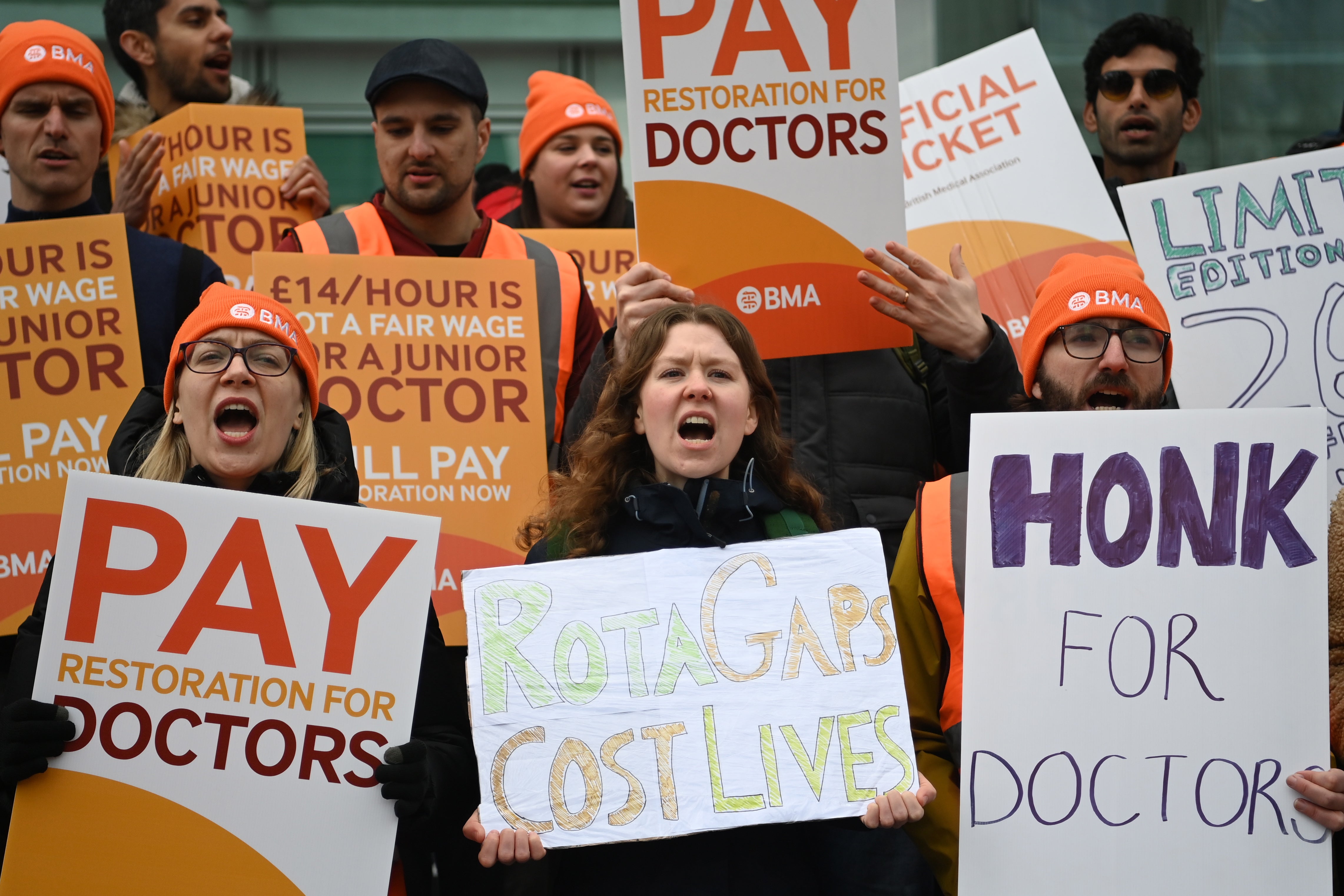Junior doctors risk losing public support if they demand too much
Striking medics ought to remember their history, writes John Rentoul


The trade union movement has never recovered from its moral defeat in the winter of discontent in 1978. Junior doctors ought to remember their history, or they risk losing public support.
James Callaghan’s government lost control of its pay policy because trade unions broke ranks with each other. The ones that were best placed to cause disruption (“bring the country to its knees” was the tabloid headline translation) demanded more money than those with less industrial muscle.
When relatively well-paid car workers at Ford secured a 17 per cent increase, breaking the government’s 5 per cent guideline, it seemed to usher in a free-for-all that had little to do with the labour movement’s rhetoric of equality and solidarity.
Junior doctors attract more public sympathy than car workers, but they, too, are relatively well paid, even if they have lost out more than other groups of public sector workers in real terms in recent years.
Paradoxically, their case is made harder by the Labour Party. One way junior doctors could make their case would be to argue for higher taxes. Otherwise they are saying that other (lower-paid) public sector workers should get less, and they should get more.
But Labour doesn’t agree with higher taxes. In the latest of its Twitter adverts, Labour argues that taxes are too high. At the same time, its message to the junior doctors, conveyed by Pat McFadden, the shadow chief secretary to the Treasury, in media interviews this morning is that they should “get around the table”.
The implication is that they should accept much less than they are asking for, because that would be “fair”. What McFadden actually said was this: “I don’t think the doctors are going to get a 35 per cent pay increase. You might remember when the nurses were on strike a month or two ago, I think their union leaders started off by asking for a 19 per cent pay increase.
“I don’t think we should be too distracted at the moment by the headline demand or request at the beginning of the strike. The important thing is to get around the table and try to negotiate a pay deal that’s fair to doctors and also fair to the general taxpayer, who at the end of the day pays all the bills in the NHS.”
McFadden, a proper Blairite, was tactfully pointing out that you cannot get something for nothing. What he would probably say, were he being less tactful, is that it would be respectable to argue for higher taxes. Junior doctors could argue that taxes are too low in this country, despite their being at a 70-year high. They could say that we should have higher taxes to pay for better public services. Many people would agree, although they would probably prioritise low-paid social care workers over doctors.
But most people agree with Labour that taxes are too high already, which means that any extra money for junior doctors has to come from somewhere else in the public sector. Some reordering of priorities is certainly possible, as Jeremy Hunt and Rishi Sunak confirmed in their disastrous decision in the Budget to give more money to the richest doctors through their pensions.
And Labour may be right that, as it suggested in its Twitter ad, it could squeeze a bit more money out of the windfall tax on oil and gas companies, although that is already at 75 per cent. The trouble is that this money has been allocated to pay for a notional freeze in council tax, which is a time-limited and imaginary special offer for the sake of the local elections next month.
By the time of the next general election, if there is still a windfall tax to squeeze, its proceeds are likely to have been spent – notionally – several times over by Labour politicians. And junior doctors will get only what McFadden calls their “fair” share of that.
If nurses vote to accept their 5 per cent (plus a one-off payment) when their ballot closes on Friday, that will put pressure on the junior doctors to reduce their demand to a similar level. Otherwise they will be pitting public sector workers against each other, and making a mockery of “fairness”.






Join our commenting forum
Join thought-provoking conversations, follow other Independent readers and see their replies
Comments